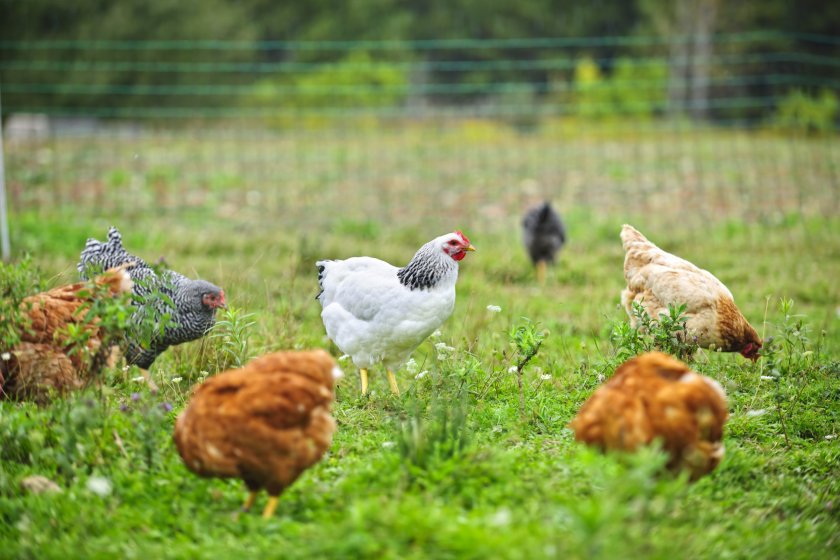
RSPCA Assured has unveiled new welfare standards for laying hens to be introduced next year, with farmers to be given up to six years to implement them.
The new standards will come into effect from May 2024 as part of a phased process consisting of up to six years.
Verandas and natural daylight requirements are amongst incoming changes, the assurance body announced.
The RSPCA said it regularly reviews and updates all of its standards for different species in consultation with the farming industry.
As part of this review process, a new set of standards for laying hens has been created, which includes revisions to existing ones.
Dr Kate Norman, poultry specialist at the RSPCA, said the new laying standards were a 'huge step forward' for hen welfare.
"Two of the key new standards are the introduction of verandas for barn members and the new requirements for natural daylight for both barn and free-range members, which will come into force in 2030.
“We recognise these are a big change for some of our members and it’s therefore important that we give them enough time to make the necessary changes and support and advise them during that process.
"As such, RSPCA Assured has doubled the notice period usually given to members to implement new standards from three to six months.
"And the RSPCA has allowed up to six years for the more significant changes, such as verandas and natural daylight, to be made.”
A veranda is an additional roofed, but uninsulated, structure attached to the outside of a poultry building, which has a fully littered floor.
Alongside other key welfare improvements, verandas provide barn hens with access to natural daylight and an outdoor climate.
Dr Norman explained that there were farmers in the UK and Europe that had already successfully installed verandas or were considering investing in them.
“When looking at the European farms and research, we discovered that including a veranda resulted in a reduction of the daytime stocking density in the main house.
"This has welfare benefits such as promoting preening, dustbathing and foraging behaviour and reduces feather damage.”
The new natural daylight standard requires barn and free-range members to provide natural daylight in houses for all hens by the age of 21 weeks.
The natural daylight coverage must correspond to at least 3% of the total floor area of the house.
“Natural daylight is not something that is commonly given to laying hens in the UK,” Dr Norman added. “But giving them natural light provides many welfare benefits.
Turkey and broiler producers under the RSPCA Assured scheme are already required to provide natural daylight inside the house.
